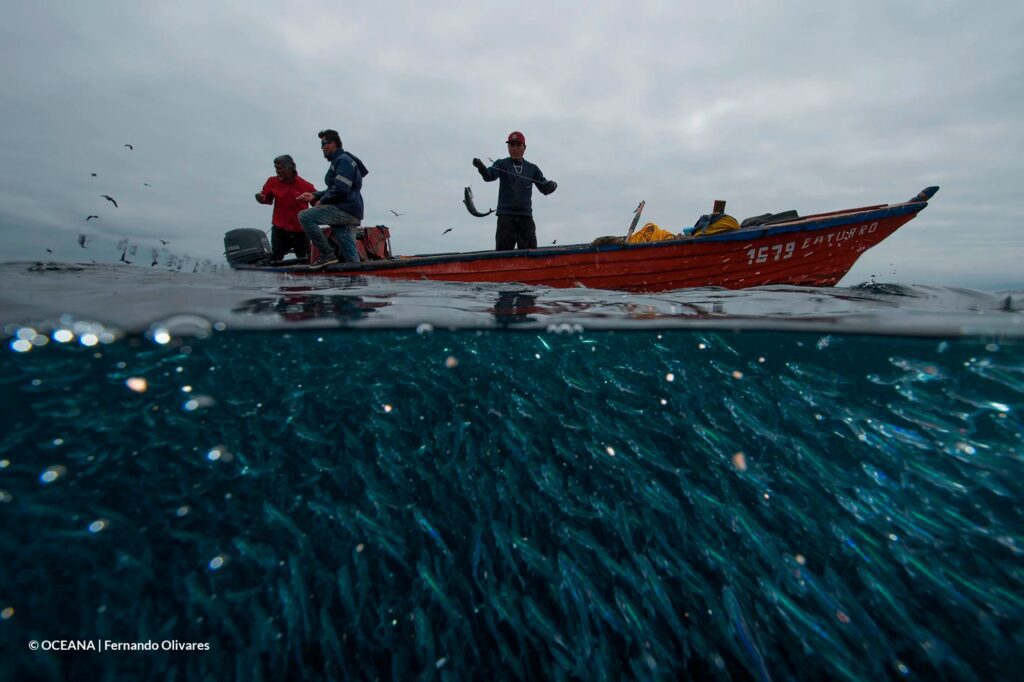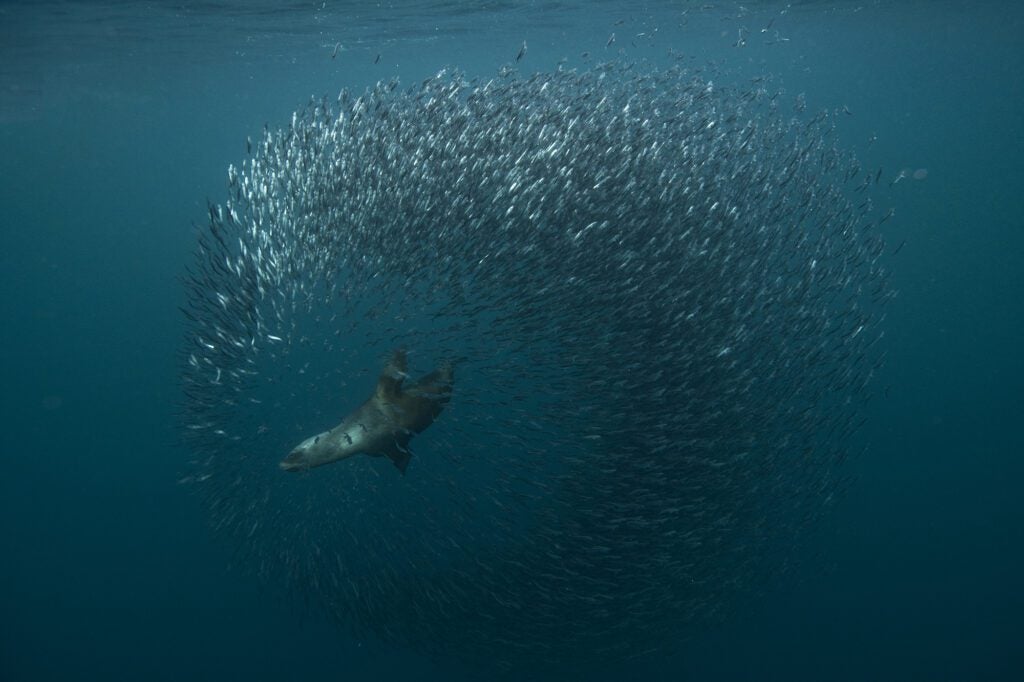Chile creates a new marine protected area in Pisagua Bay following four Oceana expeditions
Press Release Date: January 26, 2023
Location: Santiago, Chile
Contact:
Gillian Spolarich | email: gspolarich@oceana.org
202-467-1909
- A crucial marine ecosystem located in northern Chile, the Pisagua Sea, was declared a marine protected area (MPA).
- This announcement follows four expeditions led by Oceana and Universidad Arturo Prat to collect key information to secure the area’s protection.
- The Pisagua Sea is the first MPA in Chile to protect not only marine species, but also local artisanal fishing communities.


Today, the Council of Ministers for the Sustainability of Chile declared ‘Pisagua Sea’ a new marine protected area (MPA) following Oceana’s scientific recommendation to protect this biodiverse ecosystem.
The new MPA, located in Pisagua Bay in northern Chile, measures 181,622 acres. Pisagua Sea is the first multipurpose coastal MPA of the Tarapacá region, recognized for its fisheries abundance.
“We had scientific information that pointed to the richness of this place,” explained Guillermo Guzmán, professor at Universidad Arturo Prat. “However, developing expeditions with Oceana was crucial; we were able to corroborate that Pisagua Bay is effectively one of the most productive areas of the South Pacific.”
According to Oceana’s expedition findings, Pisagua Sea has an abundance of phytoplankton and crustaceans such as krill and prawns, making it the perfect area for larger organisms including fish, mammals, and birds to reproduce. These findings motivated local authorities of the Ministry of Environment of the Tarapacá region to lead nationwide efforts to create the Pisagua Sea MPA.
“When we learned about the scientific information that resulted from these expeditions, there was no doubt about the need to create this new marine protected area in the north of Chile, and we set forth a protection plan that was worked on in depth with the artisanal fishermen of Pisagua, while at the same time it was socialized with the community that would be benefited,” said Hector Derpich, Regional Representative of the Ministry.
A marine protected area for artisanal fishing
Because of Pisagua Bay’s rich biodiversity, artisanal fishermen can sustainably fish in the area to support the local community and economy. “Pisagua Bay is rich in natural resources and its management areas have been correctly managed by artisanal fishermen, which is why, for the first time, we are able to establish a marine protected area that directly protects artisanal fishing in northern Chile,” said Liesbeth van der Meer, Oceana’s Senior Vice President in Chile. “Chile had made huge progress in the protection of oceanic islands, but not along the continental coast, a debt that will be settled with the marine protected area of Pisagua,” added van der Meer.
On-site science
Since 2017, Oceana and Universidad Arturo Prat have led four scientific expeditions in Pisagua Bay, where they documented abundant marine life at a depth of up to 800 meters. The expedition teams found a great biomass of different fish, coral banks, deep-sea conger eels, manta rays, sharks, and crabs, among many other species. In addition, large schools of Chilean jack mackerel and anchovies were detected, important fish stocks in Chile, as well as dense algae forests that are home to many species including the rarely sighted goldspot sheepshead.
Press Contacts: Cristian Arroyo, carroyo@oceana.org
Gillian Spolarich, gspolarich@oceana.org
Oceana is the largest international advocacy organization dedicated solely to ocean conservation. Oceana is rebuilding abundant and biodiverse oceans by winning science-based policies in countries that control one-quarter of the world’s wild fish catch. With more than 225 victories that stop overfishing, habitat destruction, pollution, and the killing of threatened species like turtles and sharks, Oceana’s campaigns are delivering results. A restored ocean means that 1 billion people can enjoy a healthy seafood meal, every day, forever. Together, we can save the oceans and help feed the world. Visit www.oceana.org to learn more.



